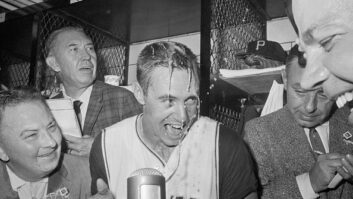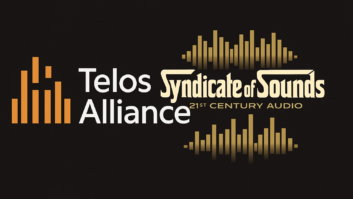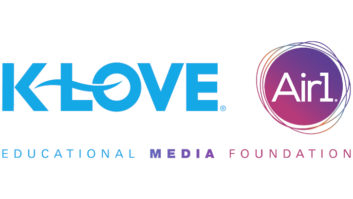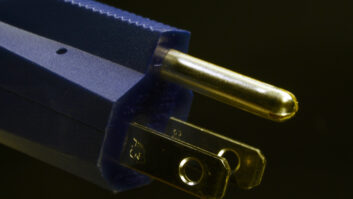For the millions who are stuck at home, the National Recording Registry has a few new suggestions on how to inspire nostalgia or arouse baseball fervor — and much of it came to you through your radio.
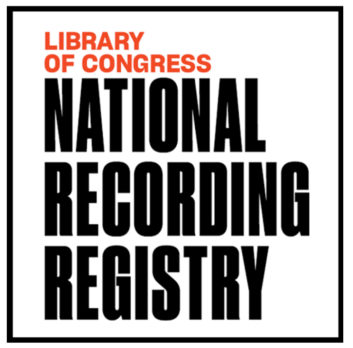 The U.S. Library of Congress recently named more than two dozen recordings as national aural treasures worthy of preservation because of their cultural, historical and aesthetic importance to the nation’s recorded sound heritage.
The U.S. Library of Congress recently named more than two dozen recordings as national aural treasures worthy of preservation because of their cultural, historical and aesthetic importance to the nation’s recorded sound heritage.
What makes that list? The opening melody from “Mister Rogers’ Neighborhood;” the thrilling play-by-play of the 1951 National League tiebreaker between the New York Giants and the Brooklyn Dodgers and even the Village People’s international dance anthem “Y.M.C.A.” Those are among the newest recordings recently inducted into the National Recording Registry of the Library of Congress.
“The National Recording Registry is the evolving playlist of the American soundscape. It reflects moments in history captured through the voices and sounds of the time,” said Librarian of Congress Carla Hayden. The library received more than 800 nominations this year.
Under the terms of the National Recording Preservation Act of 2000, the librarian, with advice from the Library’s National Recording Preservation Board (NRPB), is tasked with annually selecting 25 titles that are for culturally, historically or aesthetically significant and are at least 10 years old. The new recordings bring the total number of titles on the registry to 550, a small part of the Library’s vast recorded-sound collection of nearly three million items.
Of the different genres and formats, listeners can find old radio sportscasts, classical recordings, jazz music and songs so knowable that it only takes a few notes to decipher its origin — take, for example, the disco hit “Y.M.C.A.” The new group of recordings also include the vibrant 2008 “Percussion Concerto” album and Dr. Dre’s debut studio album “The Chronic” (1992). Other selections include the 1920 jazz swing “Whispering” by Paul Whiteman and his Orchestra; Puccini’s “Tosca,” performed by Maria Callas; and the first commercial digital recording of symphonic music in the United States by the Cleveland Symphonic Winds. Several recordings on the list were made by some of America’s female changemakers, including Memphis Minnie, one of the most popular female country blues singers of all time and her single “Me and My Chauffeur Blues,” which was recorded in 1941.
Also on the list: comedy radio classics. Allan Sherman’s comedy classic from 1963, “Hello Muddah, Hello Fadduh” made the registry this year, a fact that would have astonished its author, said Sherman’s son, Robert Sherman. “It’s still something that people care, sing about. It would have amazed my father, 50-plus years since he wrote it.” Other ’60s classics include the original version of “Wichita Lineman,” written by Jimmy Webb and recorded by country music singer Glen Campbell in 1968.
Recordings of several radio broadcasts made the list too: an episode of “Arch Oboler’s Plays,” one of the earliest American old-time horror radio programs, and the announcement of the assassination of Pres. John F. Kennedy made by the Boston Symphony Orchestra conductor during the recording of a live performance on Nov. 22, 1963.
And lest we forget the appeal of our nation’s pastime, the Library of Congress selected Russ Hodges’ call of the 1951 National League tiebreaker between the New York Giants and Brooklyn Dodgers.
In that game, the Giants were down two runs in the bottom of the ninth inning of the final game of the three-game playoff. Ralph Branca was pitching for the Dodgers, Bobby Thomson came to bat, and Willie Mays was on deck.
“Ralph was a good, good pitcher. Didn’t have a real good curve but a good fastball,” the legendary Mays said to the Library of Congress. “And he placed it a lot, so I thought they would do the same thing with Bobby. Walk him and pitch to me because they knew that was my first year.”
They didn’t. Instead, Thomson hit a walk-off home run — the “Shot Heard ’Round the World” — and gave the Giants one of the most dramatic victories in baseball history.
Registry titles are preserved at the Library of Congress Packard Campus for Audio Visual Conservation, a facility with more than 7 million collection items where the nation’s library acquires, preserves and provides access to the world’s largest and most comprehensive collection of films, television programs, radio broadcasts and sound recordings.
Here are two well-known recordings that made the list.
The 1951 National League Tiebreaker: New York Giants vs. Brooklyn Dodgers — Russ Hodges, announcer (Oct. 3, 1951)
In 1951, the New York Giants won 37 of their final 44 games to catch their crosstown rival Brooklyn Dodgers, forcing a three-game playoff for the National League pennant. The teams split the first two games, setting up the decisive tiebreaker at the famed Polo Grounds. In the bottom of the ninth inning, the Dodgers led 4 to 1. The Giants had scored a run and had runners at second and third with one out when third baseman Bobby Thomson stepped into the batter’s box. Ralph Branca’s first pitch was a called strike. As he released his next pitch, Giants announcer Russ Hodges said, “Branca throws…” and then shouted, “There’s a long drive. It’s gonna be, I believe — the Giants win the pennant! The Giants win the pennant! The Giants win the pennant! The Giants win the pennant!” This game was actually covered by several legendary announcers, including Hodges (Giants radio), Ernie Harwell (Giants TV), Red Barber (Dodgers radio) and Gordon McLendon (the national broadcast). But it is Hodges’ call that is most remembered and which so vividly captures not only the action on the field but also the excitement of the moment — truly the thrill of victory and one of the greatest calls in all of sportscasting.
WGBH broadcast of the Boston Symphony on the day of the John F. Kennedy Assassination, Boston Symphony Orchestra (1963)
The ageless adage of “drawing comfort through music” had never been more thoroughly tested than on the scheduled afternoon broadcast of the Boston Symphony, with its conductor Erich Leinsdorf, on Nov. 22, 1963. That day, just after concluding Handel’s Concerto Grosso in B flat major and a second short piece, Leinsdorf was forced to break with normal concert protocol and, stoically, address the large audience with a change of program and to share the tragic news of Pres. Kennedy having been killed in Dallas only minutes before. For those in the audience and thousands more listening to the broadcast over the radio, it was their first news of the president’s assassination. In the hall, and over the airwaves, shock and gasps rang out. As everyone in the hall — including the musicians — processed this news, the sheet music for the “Funeral March” from Beethoven’s 3rd symphony was distributed to the orchestra, which bravely performed. The next day, Margo Miller of the Boston Globe reported, “The ‘Eroica’ marcia funebre is one of the great moments in music. The dread beat of the march cannot be disguised. Yet there is a middle section of the movement, a time of incredible energy and involvement, somehow, or so it seemed Friday, expressing eternal hope.”
Final List — 2019 National Recording Registry
“Whispering” (single), Paul Whiteman and his Orchestra (1920)
“Protesta per Sacco e Vanzetti,” Compagnia Columbia; “Sacco e Vanzetti,” Raoul Romito (1927)
“La Chicharronera” (single), Narciso Martinez and Santiago Almeida (1936)
“Arch Oboler’s Plays” episode “The Bathysphere.” (Nov. 18, 1939)
“Me and My Chauffeur Blues” (single), Memphis Minnie (1941)
The 1951 National League tiebreaker: New York Giants vs. Brooklyn Dodgers — Russ Hodges, announcer (Oct. 3, 1951)
Puccini’s “Tosca” (album), Maria Callas, Giuseppe di Stefano, Angelo Mercuriali, Tito Gobbi, Melchiorre Luise, Dario Caselli, Victor de Sabata (1953)
“Hello Muddah, Hello Fadduh” (single), Allan Sherman (1963)
WGBH broadcast of the Boston Symphony on the day of the John F. Kennedy assassination, Boston Symphony Orchestra (1963)
“Fiddler on the Roof” (album), original Broadway cast (1964)
“Make the World Go Away” (single), Eddy Arnold (1965)
Hiromi Lorraine Sakata Collection of Afghan Traditional Music (1966–67; 1971–73)
“Wichita Lineman” (single), Glen Campbell (1968)
“Dusty in Memphis” (album), Dusty Springfield (1969)
“Mister Rogers Sings 21 Favorite Songs From ‘Mister Rogers’ Neighborhood’ ” (album), Fred Rogers (1973)
“Cheap Trick at Budokan” (album), Cheap Trick (1978)
Holst: Suite No. 1 in E-Flat, Suite No. 2 in F / Handel: Music for the Royal Fireworks / Bach: Fantasia in G (Special Edition Audiophile Pressing album), Frederick Fennell and the Cleveland Symphonic Winds (1978)
“Y.M.C.A.” (single), Village People (1978)
“A Feather on the Breath of God” (album), Gothic Voices; Christopher Page, conductor; Hildegard von Bingen, composer (1982)
“Private Dancer” (album), Tina Turner (1984)
“Ven Conmigo” (album), Selena (1990)
“The Chronic” (album), Dr. Dre (1992)
“I Will Always Love You” (single), Whitney Houston (1992)
“Concert in the Garden” (album), Maria Schneider Orchestra (2004)
“Percussion Concerto” (album), Colin Currie (2008)

